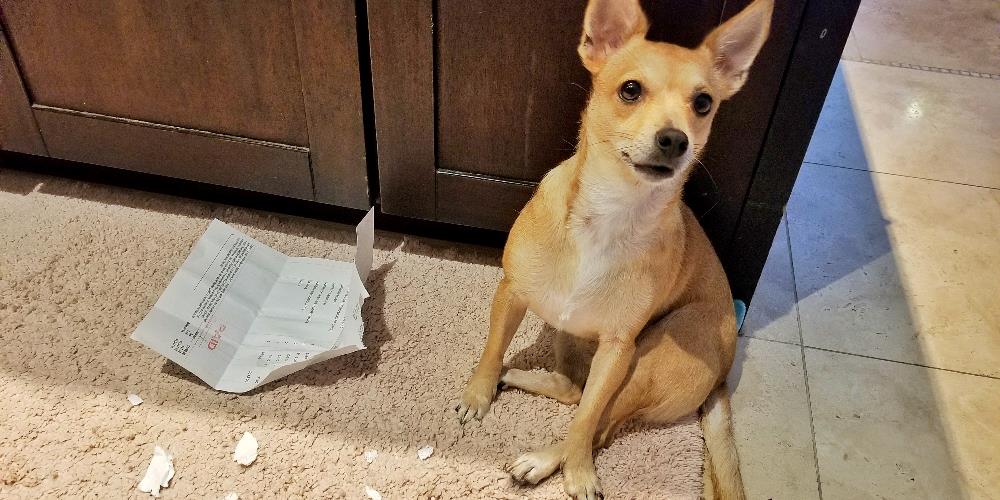— Our brain’s ‘executive functions’ include the ability to evaluate, decide, and plan. To accomplish tasks we use our cognitive control abilities including focused attention to stay on track with managing our goals.
It appears we’re collectively capable of setting goals but often fail at seeing them through. Our actions are guided by the perception-action cycle: we perceive the world in a certain biased way and act accordingly.
However, our existing bias and distorted view of reality can distract and mislead. At times we make decisions based on a preconceived outcome while misjudging both, its extend and probability. Inadvertently, data and facts get replaced with wishful thinking to fit our narrative for the outcome.
We might be navigating in the wrong direction. A slippery slope where we soon could lose our focus and entirely miss our goal.
We already discussed some mental models to overcome fear and the three PPPs, and the risks of real estate purchase decisions based on false assumptions.
Buying real estate is often one of our biggest financial decisions. And once purchased, we can’t just liquidate with the click of a mouse, like selling a stock or an ETF. That’s why we must be clear about why we are buying before we buy it.
We must…
- Define the purpose, and
- Execute accordingly.

________________________________
Here are two real-life stories that demonstrate the point:
1) “We Want To Stop Spending Money On Hotel Rooms”
A client of mine from Colorado had been vacationing 6 weeks every winter in Hawaii. They decided to buy a condo with the primary purpose to eliminate the need for expensive hotel rooms on their annual visits.
They also wanted some rental income so that the property could pay for itself.
A practical choice would have been a condotel. It provides the best of both worlds:
- a) a vacation getaway, with booking / personal-use flexibility, and
- b) maximum short-term rental income potential.
A good selection of suitable options were readily available. Except, the client also desired:
- c) to be close to Kailua Beach, their favorite spot.
a) and b) would have accomplished their goal to eliminate expensive hotel stays, but adding c) as a requirement makes for an impossible combination.
That’s like wanting ‘quality, quick & cheap’ when we hire a contractor. At best, we get two out of three. But we can’t have all three at the same time. They are mutually exclusive! We need to decide what’s most important and settle on a feasible compromise.
Kailua condos allow rental terms of 30-days or longer, but no short-term renting. There are no condotels close to Kailua Beach.
After evaluating the pros and cons of condotels versus a regular condo in Kailua, the client opted for a Kailua condo.
What Happened Next?
About 18 years later, the client reconnected to sell their condo. The original tenant was vacating after having rented for the last 18 years! Say what? The owner ended up never staying in their condo.
They had continued to visit Hawaii every winter all these years and still paid for expensive hotel rooms because their condo was rented without a break to the same tenant.
The client originally desired a) and b), plus c). Regretfully, they got none of it!
Instead, they…
- Continued to pay hefty hotel expenses every year.
- Did not get to stay close to Kailua Beach.
- Received average long-term rental income, instead of maximum short-term rental potential.
- Sold the property without a 1031 exchange, paying capital gains taxes and the hefty depreciation recapture tax. Therefore giving back all the accumulated real estate tax benefits and rendering the overall investment return substandard.
The original goal had been missed entirely. Neither lifestyle nor cashflow had been improved. So much for proper planning and execution. – Oops. ☹
See related article: Condotel Reality – Cash Flow vs Lifestyle
What Can We Learn From It?
“You can have it all, just not all at once.” ~ Oprah Winfrey
I never met anybody that wants to lose money. But I meet many that aren’t clear about their goals and miss their mark as a result.
You buy a primary home to meet your lifestyle requirements, e.g. location, commute, privacy, size, number of rooms, amenities, etc.
And, you buy your investment properties based on what might give you the best return for your money.
The best cash flow investments are often far from being the best lifestyle properties. And the best lifestyle properties often make little financial sense as investments.
When you buy an investment property with the desire for personal use, then you must strike a practical balance between investment return (cash flow) and personal enjoyment (lifestyle).
There is a difference between needs and wants. Know the difference. – Ask yourself:
- What is my budget?
- How many days will I be occupying the property?
- How much space do I need?
- How much of a net negative cash flow per month am I willing and able to absorb?
We want you to be realistic and avoid common mistakes.
Lifestyle With Some Cashflow, Or Cashflow With Some Lifestyle?
We have clients that buy $3+Mill properties and leave them vacant. They use the property only for occasional personal enjoyment and don’t seem to mind how much it costs to maintain.
We also have clients that depend on the property’s cash flow to pay for the maintenance fees and property taxes.
If lifestyle requirements trump cash flow requirements, then you have far more options available with residential homes and condos.
If cash flow requirements trump lifestyle requirements, then your choices are a bit limited.
Perhaps, for extended times of personal use, e.g. two weeks to several months, your requirements for lifestyle quality might be more important than the cash flow.
And if you only visit a couple of days per year, then perhaps cash flow might be more important than the quality of accommodation.
You must be clear about the ideal outcome and settle on the most practical compromise. Many of our clients want some minimum requirements on lifestyle (e.g. must be close to the beach, have a lanai, full kitchen, etc.) but also want some rental cash flow so that the property carries itself.
What is the most practical balance between cash flow and lifestyle for you? Contact us when ready. We are happy to help with the process.
See related article: Personal Use Of Your Vacation Rental

________________________________
2) “To Make Financial Sense, The Property Needs To Be Worth $X In 10 Years”
Earlier this year, a first-time homebuyer client was shopping for a primary residence. The client had a strong background in finance and accounting. He had missed out on several excellent homes as a result of submitting offers that were too low. Frustrated, the client eventually became more motivated and offered closer to fair market value on a property that was an excellent fit.
Before finalizing the purchase, the client was torn and confessed his dilemma: The property was perfectly matching his needs and wants, but ‘for this purchase to make financial sense, the property needs to be worth $X in 10 years!” – How so?
The client was analyzing his first home purchase as an investment decision just as he would analyze the purchase of equities (stocks) or some other financial investment opportunity. He was accustomed to specific investment returns and expected that the financial return on his principal residence should be no less!? – Could this be flawed thinking?
The purpose of our primary home is to live in it. A primary home is not an ‘investment asset’ comparable with equities.
What’s An Investment Asset?
Personal-finance.extension.org defines: “Investment assets are tangible or intangible items obtained for producing additional income or held for speculation in anticipation of a future increase in value (appreciation). Examples of investment assets include mutual funds, stocks, bonds, real estate, and retirement savings accounts such as 401(k)s and IRAs.”
Although real estate is listed in the definition, a primary residence, the home we live in, does not compare to mutual funds, stocks, or bonds. There is no cash flow from owning our home. In contrast, we don’t get to live in our mutual funds, stocks, or bonds.
Owning our home is an option that offers long-term benefits over renting. Homeownership brings a sense of stability, security, and responsibility which is priceless. You become the king of your castle. Nobody can raise your rent or give you notice to vacate.
The psychological benefits outweigh the financial return. The dividend is that you get to live in your home. Any potential appreciation is a bonus inflation hedge.
In simple terms:
- Buy investment assets for a) income and b) appreciation. – (Measurable returns)
- Buy a primary home as a safe and comfortable place to live in. – (Priceless benefits)
If you don’t want the benefit of living in a comfortable place for yourself, you could choose to live under a bridge and collect rent from someone who does. – But that’s not why you buy your home.
Economic Number Crunching?
Years ago, I met an economist that did not own his house. He argued that it made no economic sense to own a home(!?) – Perhaps there is more to consider than economic sense. I lost contact and don’t know what happened to him.
In Honolulu, housing supply is short and demand is never-ending. Both rents and property values are poised to increase in the long run.
“Life can only be understood backwards, but it must be lived forwards.” ~ Soren Kierkegaard
My personal decision was to own my home, regardless if it made economic sense or not:
- as soon as I could afford it, and
- as soon as I committed to living in the same home for at least 3 years.
A couple of years later, I turned my 1st home into a rental investment property and purchased another home. I repeated this cycle a few times and ended up owning multiple rentals.
Looking back, now it makes perfect economic sense to me. No regrets. Given the chance, I would have done it again, and I probably would have bought my first home sooner.
Granted, it’s not for everyone. Responsibility, discipline, and commitment are virtues with vanishing popularity.
Warren Buffett once said, “buying a home was one of the best investments I ever made besides marrying my wife.” Warren explained: “my family and I gained 52 years of terrific memories with more to come.”
— I’m with Warren on this one.

________________________________
2020 Projected Hindsight
We live life forward, and we plan and understand life backward.
Project yourself ten years into the future and visualize where you want to be in life. Picture yourself vividly having already achieved everything you desired to accomplish.
Then ask yourself the hypothetical question: ‘Knowing what I know now, ten years in the future, what could I have done better or differently ten years earlier to optimize my ideal hypothetical life.’
This powerful exercise will help you define purpose in many areas of your life, not just real estate. It will improve clarity with your decisions, actions, and habits, consistent with achieving your goals.
Conclusion
The clearer you are on defining the purpose of your purchase, the more likely you are going to hit your goals and minimize the risk of disappointment. Define how you will use the property, how long you might want to keep it, and what you might want to do at the time you are ready to sell.
— We don’t just write about this stuff. We are expert realtors specializing in representing buyers and sellers of real estate in any market condition. We love what we do and look forward to assisting you too!
Contact us when you are serious and ready. We are here to help. ~ Mahalo & Aloha
Also…, we want to make this The Best real estate website you visit, and we love to get your feedback. Let us know any comments or ideas on how we might improve. We are humbled by your support, and we are dedicated to constant learning and growing with you. ~ Mahalo & Aloha

You present a lot of important points to consider, both in real estate and in our daily life goals.
Aloha Theresa!
Thank you for your kind comment.
Good to hear from you.
I have been thinking of you lately while I’m conceptualizing my next book. I will reconnect when ready.
All the Best.
~ Mahalo & Aloha
Good summary of difference in lifestyle versus cash flow investing
Aloha Dede Heiman!
Thank you for your kind comment.
All the Best. ~ Mahalo & Aloha